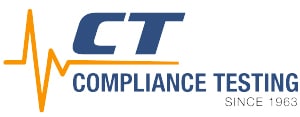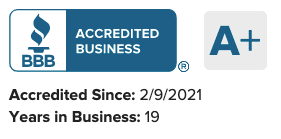Need help complying with FCC regulations? Schedule a free consultation with our team to discuss FCC testing and achieving compliance for your product, or call us on 866-540-5287 to talk to our compliance experts right away.
Get Free Answers to Your FCC Compliance Questions
Need help achieving compliance with FCC Part 15 or other FCC regulations?
Enter your name, email address and question, and our engineering team will contact you with the information you need to solve your FCC testing questions and achieve compliance for your product.
FCC part 24 Code of Federal Regulations provides guidelines for the testing of personal communications services. Under the Communications Act of 1934, the FCC is responsible for overseeing that the production and operation of PCS devices and stations is done so with respect to the safety of manufacturers and end users.
Compliance Testing has decades of experience testing radio frequency exposure and transmission stability to help organizations achieve market access around the world. Public communications service providers and non-profit stations also require FCC certification in order to legally operate.
FCC Part 24 Communication Service Testing
Similar to the other parts of Title 47 of the CFR, Part 24 covers communication services within a particular radio frequency spectrum. In this case, Personal Communications Services, or PCS, are the focus of regulatory testing. Licensing under Part 24 allows for the provision of mobile communication transmission to be used by anyone with a compatible receiver for the frequency range being used.
The FCC uses 47 CFR Part 24 in the authorization of equipment used by licensed entities. Primarily, the devices transmitting data must be below the limit for radiation exposure from both anticipated and unexpected radio frequency emissions.
Outside of RF testing, stations operating within the PCS bandwidth are also subject to safety regulations surrounding their antenna height. Known as Height Above Average Terrain, or HAAT, this measurement helps station owners verify whether or not their antenna is a hazard to aircraft flying overhead.
Due to the dangerous nature of antennas interfering with air travel, the responsibility of maintaining antenna compliance falls not only on the owner but the FCC committee as well even if the antenna is not registered.
PCS Testing for Seamless Market Access
Given how much energy is used for wireless communication and radio broadcast, it’s understandable that the FCC has sided with safety when it comes to the technical specifications of transmitters. The transmission of radio frequencies produces unique emissions that require balancing exposure with proper functionality.
With this understanding, FCC Part 24 allows for each station to be tested based on their parameters of use. Testing will measure both peak and average emission levels to help teams decide on the next steps needed to achieve total compliance.
Prepare for FCC Part 24 Approval With Compliance Testing
Thanks to over 50 years of experience in electronic and wireless device market access, Compliance Testing has the industry knowledge required to test all components needed to operate a radio communications station. From design assistance to risk assessments, Compliance Testing’s team of seasoned experts can help at any step of the way.
When the time comes to ensure FCC Part 24 compliance, schedule a free consultation with the Compliance Testing team. Don’t leave your operational success up to chance, reach out today!




